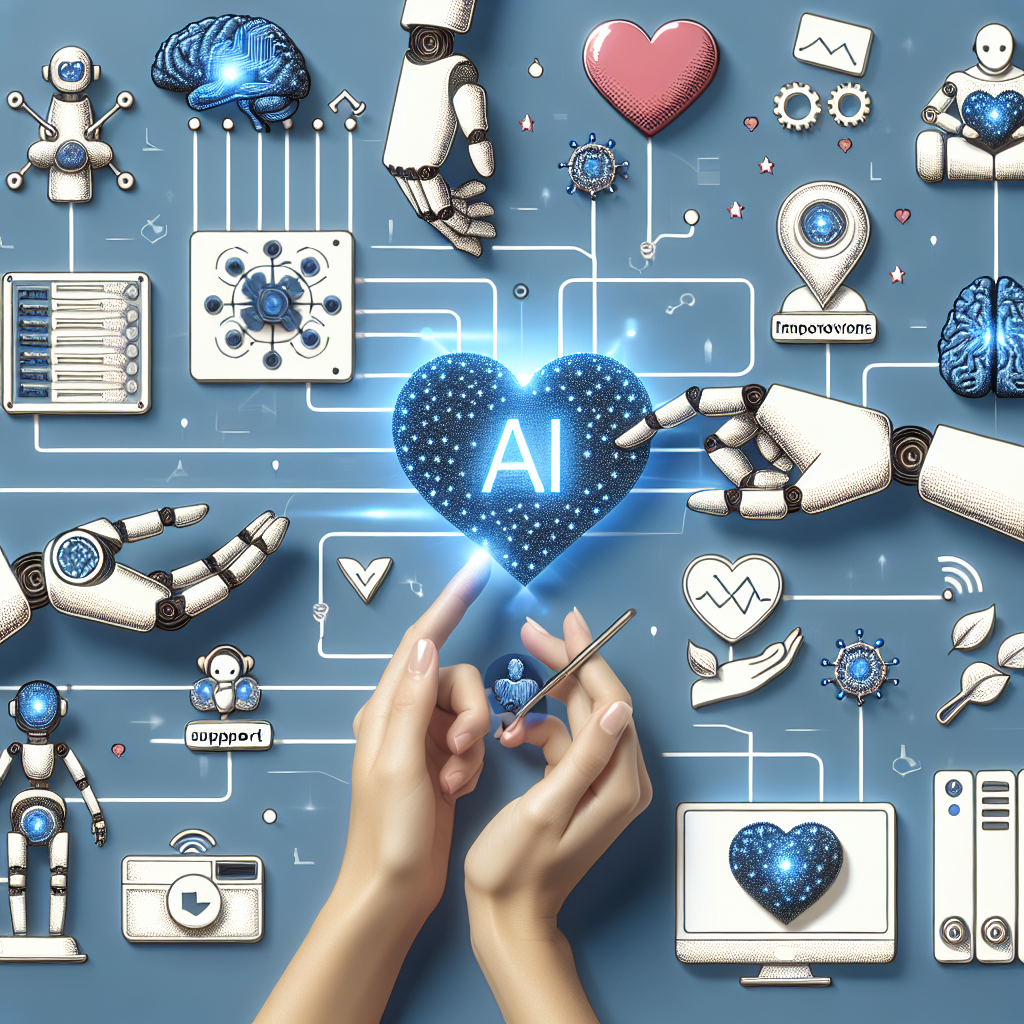AI Deployment in Social Services: Improving Support Programs
Artificial intelligence (AI) has been making significant strides in various sectors, including healthcare, finance, and transportation. One area where AI is increasingly being deployed is in social services, with the aim of improving support programs for vulnerable populations. AI technologies have the potential to enhance efficiency, accuracy, and effectiveness in delivering social services, ultimately benefiting those in need.
AI in social services can be used in various ways, such as automating administrative tasks, analyzing data to identify trends and patterns, predicting outcomes, and providing personalized recommendations. These capabilities can help social service agencies optimize their resources, make informed decisions, and deliver more targeted and effective services to individuals and communities.
AI technologies can also help social service agencies better understand the needs and preferences of their clients, leading to more personalized and customized support programs. By analyzing data from various sources, including social media, online behavior, and demographic information, AI can provide insights that can inform the design and delivery of services tailored to the specific needs of each individual.
One of the key benefits of AI deployment in social services is the ability to improve decision-making processes. By harnessing the power of machine learning algorithms, social service agencies can analyze vast amounts of data to identify patterns and trends, predict outcomes, and make informed decisions. This can lead to more efficient resource allocation, better targeting of services, and improved outcomes for clients.
AI can also help social service agencies identify and prioritize individuals who are most in need of support. By analyzing data on risk factors, such as poverty, homelessness, mental health issues, and substance abuse, AI can help agencies identify individuals who are at high risk of negative outcomes and intervene early to prevent crises.
Furthermore, AI technologies can help social service agencies streamline their operations and improve the quality of services they provide. By automating routine tasks, such as data entry, scheduling, and documentation, AI can free up staff time to focus on more complex and meaningful work, such as providing counseling, advocacy, and support to clients.
Despite the potential benefits of AI deployment in social services, there are also challenges and concerns that need to be addressed. One of the main concerns is the ethical implications of using AI in social services, particularly in terms of privacy, fairness, and accountability. There is a risk that AI algorithms may perpetuate existing biases and discrimination, leading to unfair treatment of certain groups or individuals.
Another challenge is the potential impact of AI on jobs in the social services sector. As AI technologies automate more tasks and processes, there is a concern that some jobs may be displaced, leading to job loss and economic insecurity for social service workers. It is important for social service agencies to proactively address these concerns and ensure that AI deployment is done in a way that benefits both clients and staff.
In order to maximize the benefits of AI deployment in social services and mitigate potential risks, it is important for agencies to adopt a thoughtful and strategic approach. This includes investing in training and capacity building for staff, ensuring transparency and accountability in AI decision-making processes, and actively engaging with stakeholders, including clients, staff, and community members.
Overall, AI deployment in social services has the potential to revolutionize the way support programs are designed, delivered, and evaluated. By harnessing the power of AI technologies, social service agencies can improve efficiency, effectiveness, and equity in the provision of services to vulnerable populations, ultimately leading to better outcomes for individuals and communities.
FAQs
Q: How can AI technologies be used in social services?
A: AI technologies can be used in social services in various ways, such as automating administrative tasks, analyzing data to identify trends and patterns, predicting outcomes, and providing personalized recommendations.
Q: What are the benefits of AI deployment in social services?
A: The benefits of AI deployment in social services include improved decision-making processes, better targeting of services, personalized support programs, streamlined operations, and improved outcomes for clients.
Q: What are the challenges of AI deployment in social services?
A: The challenges of AI deployment in social services include ethical concerns, such as privacy, fairness, and accountability, as well as potential job displacement and economic insecurity for social service workers.
Q: How can social service agencies address the challenges of AI deployment?
A: Social service agencies can address the challenges of AI deployment by investing in training and capacity building for staff, ensuring transparency and accountability in AI decision-making processes, and actively engaging with stakeholders, including clients, staff, and community members.

